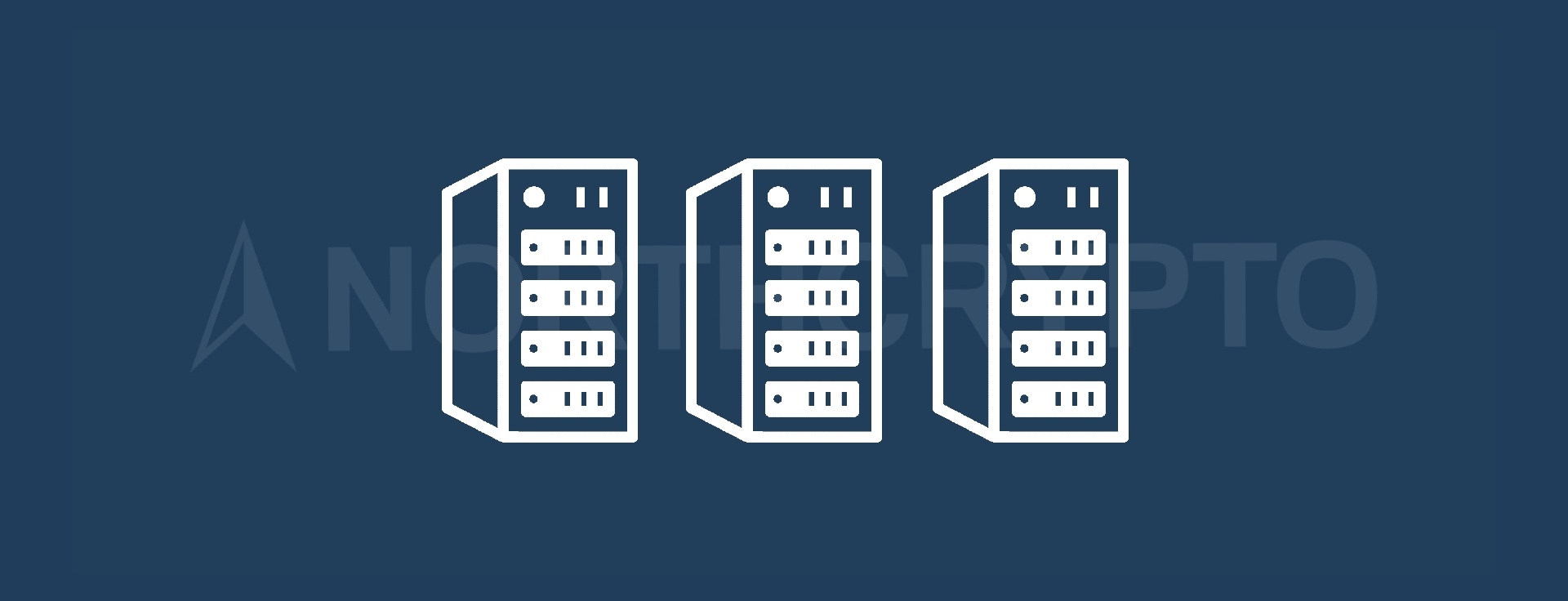
This monthly report reviews the most important cryptocurrency news in March and delves deeper into news related to cryptocurrency legislation as well as mining and purchasing Bitcoin.
March in the cryptocurrency market
Prices of all cryptocurrencies offered by Northcrypto were up during March. By far the most successful of these cryptocurrencies was Aave, which shot up more than 40 percent in a month. The rise in the price of Aave was influenced by the release of a new version of the service, i.e. Aave V3. The new version improved protocol security, capital efficiency, decentralization, and user experience, among other things. After Aave, the prices of Ethereum and Chainlink rose the most as their prices increased slightly below 15 percent in March. On the other hand, the prices of Litecoin and Bitcoin ended up about ten and seven percent higher at the end of the month than at the beginning of the month, while the price of Polygon ended up only slightly on the plus side for the month.
News about cryptocurrency regulation
During March, several different news items were published regarding the cryptocurrency regulation. In early March the city of Lugano in southern Switzerland announced that it makes bitcoin, USDT-stablecoin and the city’s own LVGA token legal tender in the city. With the decision, it will soon be possible to pay taxes, tuition fees, and all public service fees in these cryptocurrencies. In addition, more than 200 companies operating in Lugano will accept these cryptocurrencies as payment methods. On top of the three cryptocurrencies mentioned above, there was positive news from Lugano regarding the scalability solution Polygon which was added to Northcrypto’s service two months ago. There was an announcement that Polygon will act as an infrastructure partner in Lugano's stablecoin solution. All these things were announced at the Plan B cryptocurrency event held in early March in the city of just under 65,000 people.
In March, the European Union held two votes on cryptocurrency legislation. The EU first voted on a bill that could have even banned the mining of cryptocurrencies using the Proof of Work consensus algorithm. For example, Bitcoin and for now also Ethereum use the Proof of Work consensus algorithm. The bill was rejected in a vote in the European Parliament.
Besides, at the very end of the month, the European Parliament voted in favor of a bill on the privacy of cryptocurrency transactions and the use of private wallets, such as cold wallets. The bill received a lot of criticism from the cryptocurrency community, as could threaten the privacy of those who use cryptocurrencies and reduce the EU's attractiveness compared to, for example, the United States, where attitudes towards cryptocurrencies are generally more positive. However, the bill was not yet enacted by a vote in the European Parliament, as the content of the bill will be discussed with other EU institutions.
In contrast to the EU, the technologically advanced and innovation-friendly Emirate of Dubai in the United Arab Emirates introduced a positive law about cryptocurrencies in March. The Prime Minister of the United Arab Emirates and the Governor of Dubai, Sheikh Mohammed bin Rashid Al Maktoum, said their goal was to establish the position of Dubai and the United Arab Emirates as a key player in the cryptocurrency world. This means, among other things, developing the best business environment for cryptocurrencies, in terms of regulation and licensing as well as governance. Indeed, shortly after the law was enacted, Dubai granted a license for cryptocurrency operations to Binance, the world's largest cryptocurrency exchange in terms of the trading volume.
Using surplus natural gas to mine Bitcoin
In March, it emerged that ExxonMobil, the largest oil and gas company in the United States, has had a pilot program running in the United States since the beginning of last year to use surplus natural gas to mine Bitcoin. The company is now considering expanding the pilot program to Germany, Argentina, Nigeria, and Guyana. Earlier this year, another major U.S. multinational oil and gas company, ConocoPhillips, reported on a pilot program related to Bitcoin mining. The company said it sells the surplus natural gas to a Bitcoin miner in the area.
Transporting natural gas, especially over longer distances, is challenging. For this reason, many companies are forced to flare excess natural gas, releasing significant amounts of climate-damaging substances into the atmosphere. For example, the amount of natural gas flared in 2020 was approximately equal to the annual demand for natural gas in South and Central America. Therefore, the use of surplus natural gas for Bitcoin mining makes both economic and environmental sense.
Luna Foundation Guard’s plans to purchase bitcoin
Bitcoin got a major new buyer in March when cryptocurrency Terra founder Do Kwon said the Luna Foundation Guard (LFG) behind Terra plans to buy bitcoin with more than € 9 billion. This could mean that LFG would rise past the US company MicroStrategy to become the largest owner of bitcoin after Bitcoin founder Satoshi Nakamoto. At the end of March, LFG owned almost 31,000 bitcoin worth about € 1.25 billion. These bitcoins are purchased to back Terra’s own UST stablecoin. Terra is a smart contract platform focusing specifically on stablecoins.
Summary
In connection with the cryptocurrency regulation, various news items were received in March from within Europe and the rest of the world. Lugano took a big step forward as a pro-cryptocurrency city by making three cryptocurrencies legal tender in the city. The EU, for its part, is moving forward with legislation that is likely to make it more difficult for cryptocurrency companies in the EU to operate and reduce the privacy of those investing in cryptocurrencies. At this point, it is also worth recalling that Lugano is located in Switzerland, which is not an EU country. Outside Europe, Dubai took significant steps forward in its goal of providing the best cryptocurrency business environment with the introduction of cryptocurrency-positive legislation. For many Finns and Europeans, it is desirable for the EU to have a better understanding of the functioning and future potential of cryptocurrencies, so that the EU does not lag behind, for example, the United States, Switzerland, and Dubai, where attitudes towards cryptocurrencies have been much more positive this and last year.
With regard to Bitcoin mining, positive news was received in March when it became clear that ExxonMobil, the largest oil and gas company in the United States, has been running a pilot program to use the surplus natural gas to mine Bitcoin. It is very possible that in the future, several other large energy companies will be economically and environmentally sound in mining Bitcoin with surplus natural gas like ExxonMobil.
Bitcoin got a major new buyer in March as the LFG behind the cryptocurrency Terra began buying large quantities of bitcoin to back UST stablecoin. LFG aims to rise past MicroStrategy to become the largest owner of bitcoin after Satoshi Nakamoto. It will be interesting to see whether, for example, a corporate giant like Apple or Amazon, or some country will start competing with LFG and MicroStrategy in the future for a limited supply of bitcoin.
Ville Viitaharju
Cryptocurrency specialist
Last updated: 10.02.2023 09:12




